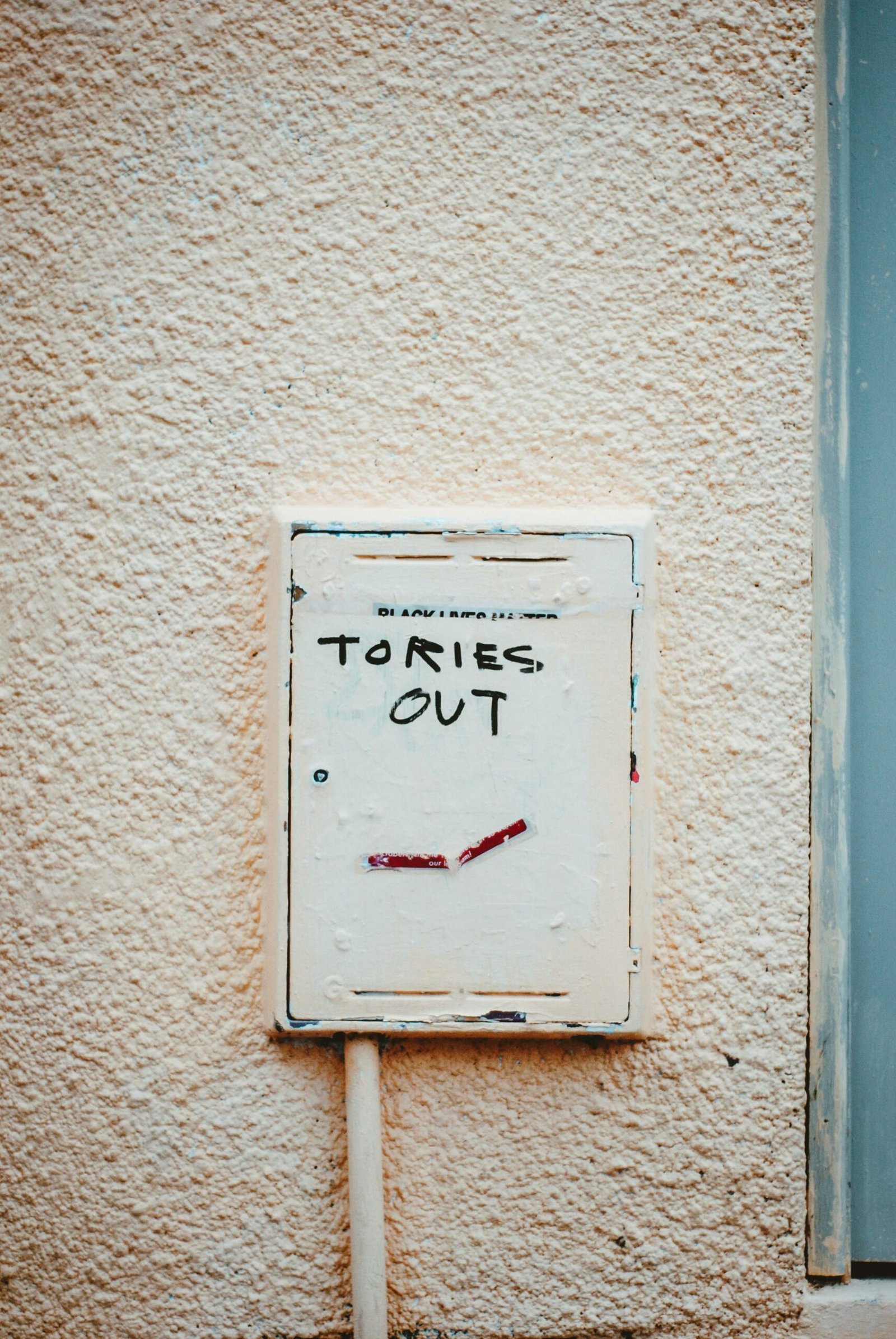
Introduction to Wojak and Political Ideologies
The Wojak meme, originating from online comics, has transcended its initial comedic roots to embody a versatile symbol in contemporary political discourse. Characterized by its simplistic, hand-drawn representation of a face, Wojak has been appropriated to express a range of emotions and ideas, particularly in discussions surrounding political ideologies. This evolution reflects the dynamic interplay between internet culture and social commentary, marking Wojak as not merely a meme but a cultural artifact representative of varying political sentiments.
As Wojak gained popularity, different iterations of the character emerged, each uniquely aligned with specific political beliefs. Variations such as “Doomer,” “NPC Wojak,” and “Chad” serve as exaggerated personifications that resonate with the frustrations and aspirations of individuals belonging to distinct ideological backgrounds. This adaptability of the Wojak character illustrates the complexity of political beliefs, enabling users to communicate nuanced perspectives in a fast-paced digital landscape.
To better understand the positioning of different political ideologies, the concept of the political compass has become a crucial analytical tool. The political compass divides ideologies into four quadrants based on their social and economic dimensions. This framework helps categorize individuals’ beliefs more effectively, providing insights into the multifaceted nature of political affiliation. By correlating various Wojak memes to specific points on the political compass, scholars and enthusiasts alike have drawn connections between the emotional expressions of Wojak and the broader spectrum of political ideologies. This evolving relationship underscores how visual culture can serve as a conduit for political expression, enhancing dialogues surrounding complex ideological positions.
Understanding the Political Compass
The political compass is a two-dimensional diagram designed to illustrate the spectrum of political ideologies, providing a framework that allows for a better understanding of where various beliefs and movements sit in relation to one another. The layout consists of two main axes: the horizontal axis, which represents the left-right spectrum, and the vertical axis, illustrating the authoritarian-libertarian spectrum.
The left-right axis primarily addresses economic ideologies. Those positioned on the left generally advocate for collective ownership or greater governmental control over resources, emphasizing social equality and welfare. Conversely, individuals on the right typically promote free market capitalism, individual property rights, and limited government intervention in the economy. This distinction is crucial as it influences policy approaches toward wealth distribution, economic systems, and the role of the state in personal finance.
The vertical axis represents the authoritarian-libertarian spectrum, thereby addressing social ideologies. Authoritarian beliefs prioritize a strong, central authority, often supporting strict regulations and governance to maintain order and societal norms. In contrast, libertarian perspectives champion individual freedoms, advocating for minimal state intervention in both personal lives and economic affairs. This divergence significantly impacts views on civil liberties, privacy, and personal autonomy.
Understanding these dimensions is essential for navigating the complexities of political discourse, particularly when interpreting Wojak memes, which often encapsulate various beliefs related to politics. By applying the political compass framework, observers can discern the ideological positions reflected in these memes and engage more thoughtfully with the underlying messages conveyed by different political viewpoints.
Wojak’s Representation of Leftist Ideologies
The Wojak meme, an internet popular culture phenomenon, serves as an intriguing lens through which various leftist ideologies can be examined. Leftism encompasses a broad range of political perspectives, including socialism, communism, and progressivism, each characterized by distinct beliefs about economic and social organization. Wojak, often depicted as a relatable or empathetic figure, acts as a conduit for expressing the sentiments associated with these ideologies.
Socialism, for instance, emphasizes collective ownership and a strong role for the state in economic matters. A Wojak meme that encapsulates socialist thought might showcase the character rallying for workers’ rights or stressing the importance of equitable resource distribution. Such representations mirror the core belief in addressing economic inequalities and fostering community welfare, reflecting the notion that the wellbeing of the collective supersedes individual profit.
In contrast, communism extends the socialist framework to advocate for a classless society. Here, Wojak may be visualized grappling with the challenges of capitalist structures, symbolizing the struggles faced by the proletariat. Memes that encapsulate this ideology often critique the disparities wrought by capitalism and envision a society where all are equally empowered, thereby portraying the aspirational aspects of communist thought.
Furthermore, progressivism focuses on reforming societal norms and policies to enhance social justice. Wojak memes within this context often highlight issues such as climate change, social inequality, and healthcare. These images evoke the urgency for systemic change, resonating with the progressive conviction that societal advancement is possible through reform and activism.
In conclusion, through the evocative imagery of Wojak, these leftist ideologies find representation that captures their essence and critiques. The diverse expressions of Wojak not only illuminate the ideological spectrum but also emphasize the relevance of collective action in addressing pressing societal challenges.
Wojak’s Representation of Rightist Ideologies
The Wojak meme has transcended its origins and evolved into a versatile tool for expressing various political ideologies, including rightist perspectives like conservatism, libertarianism, and nationalism. Each of these ideologies is represented uniquely in the Wojak universe, often emphasizing certain traits and societal critiques that resonate with their followers.
Conservatism is one of the primary rightist ideologies frequently depicted through Wojak memes. Common Wojak characters often illustrate traditional values, resistance to rapid change, and a preference for maintaining established institutions. These memes might feature Wojak in settings that emphasize family, national pride, or a nostalgic longing for an idealized past, showcasing how conservation of heritage and stability are central to conservative beliefs. The stark contrast often presented in Wojak memes—between the conservative persona and other more progressive characters—highlights the debates surrounding contemporary social issues.
Libertarianism, another rightist ideology, is represented through Wojak’s embracing of individual freedom and personal responsibility. In memes, this may be depicted as Wojak engaging in various entrepreneurial ventures, advocating minimal government intervention, or resisting authoritative figures. Some Wojak variations will illustrate the tension between state control and personal liberties, effectively pushing forth libertarian critiques of excessive governance, taxation, and regulation. These portrayals underscore the libertarian ideal of free choice and self-determination, often celebrated through humor and satire.
Nationalism, the final strand of rightist ideology explored through Wojak memes, manifests as strong national pride and identity. Wojak is frequently depicted in scenarios that celebrate national achievements or express disdain towards perceived threats to national integrity. This representation can evoke patriotic sentiments, illustrating a deep attachment to one’s country while fostering discussions on immigration, sovereignty, and cultural preservation. Nationalistic Wojaks might frame issues related to globalism in a critical light, positing them as adversarial to national interests.
In conclusion, Wojak serves as a compelling medium for the representation of rightist ideologies, capturing the essence of conservatism, libertarianism, and nationalism through various tropes and societal commentaries. These depictions foster discourse among audiences and provide insights into the core beliefs and critiques inherent in right-leaning ideologies.
The Role of Wojak in Internet Political Discourse
Wojak, a ubiquitous meme in online culture, has emerged as a significant player in shaping political discourse across various digital platforms, notably Reddit. This meme, often characterized by its simplistic, relatable facial expression, serves as a medium for users to express their sentiments regarding diverse political ideologies. The versatility of Wojak allows it to be adapted to numerous political contexts, fostering discussions ranging from humorous critiques to serious analyses of contemporary issues.
In online forums, Wojak memes can effectively enhance engagement by simplifying complex political concepts into digestible visuals. Users are drawn to these memes because they often encapsulate feelings of frustration, confusion, or amusement surrounding political events and figures. This engagement can stimulate conversations, prompting individuals to share their perspectives, debate opinions, or even reassess their political beliefs. However, the very nature of Wojak memes can also lead to conflict within discussions, as users might vehemently disagree on the implications of a particular meme or feel their ideology has been misrepresented. Such conflicts can escalate quickly, proving that while Wojak can initiate discussions, it can also deepen divides.
The influence of Wojak in political discourse also extends to the shaping of public perception regarding different ideologies. Memes that portray certain political movements or figures in a negative light may reinforce biases and stereotypes, affecting how people perceive these ideologies in real life. Conversely, Wojak can also be wielded to advocate for progressive ideas, creating a counter-narrative that challenges dominant perceptions. Therefore, Wojak not only serves as a tool for expression but also plays a crucial role in influencing political ideologies within the realm of internet culture, highlighting its multifaceted impact on discourse in online communities.
Wojak and the Nuances of Political Identity
The Wojak meme has emerged as a significant cultural artifact, particularly in the realm of political discourse. Its characters often embody a range of emotions and identities, providing a unique lens through which political ideologies can be reflected. Political identity today is not merely a question of left versus right; rather, it encompasses a more intricate landscape of beliefs and values that are increasingly nuanced. Wojak memes capture this complexity, allowing individuals to express the spectrum of their political beliefs beyond simple categorization.
For instance, the “Zoomer Wojak” often depicts younger individuals grappling with feelings of disillusionment regarding established political norms. This character frequently illustrates a blend of progressive social values with a pragmatic approach, signaling the rise of a generation that values social justice while also prioritizing economic stability. Such representations highlight how Wojak facilitates discussions surrounding hybrid ideologies that do not fit neatly into traditional political boxes.
Additionally, the “Doomer Wojak” represents a deep sense of anxiety and cynicism in response to societal issues. This character often embodies a mix of nihilism and critical thought, reflecting a myriad of beliefs that include skepticism towards capitalism and the state, yet acknowledging the despair felt by many individuals. The complexity presented by the Doomer Wojak emphasizes that political identity can be multifaceted and emotional, with layers that may conflict with conventional political categories.
Ultimately, these Wojak representations and their emotional undertones serve as a cultural commentary on the current political landscape. They encapsulate the reality that political identity is not static but rather an evolving construct influenced by personal experiences, societal changes, and prevailing ideologies. This underscores the important role that memes play in public discourse, as they not only capture humor and reverie but also provoke deeper reflections on the intricacies of political beliefs.
Criticism of Wojak and Political Memes
The use of Wojak and political memes as tools for political expression has garnered a range of criticism, particularly for their potential to oversimplify complex political beliefs. Critics argue that these memes, often crafted with humor and satire, can dilute the nuances of ideological positions, thereby presenting a one-dimensional view of multifaceted political systems. This reductionist approach can lead to significant misunderstandings about various ideologies, as viewers may develop stereotypes based on these simplified depictions rather than engaging with the substantive arguments that define those beliefs.
For example, a Wojak meme portraying a particular political ideology may focus on a single, extreme aspect of that ideology, neglecting the broader context and diverse opinions that exist within it. This can foster a misleading narrative that distorts public perception, resulting in individuals identifying with or opposing ideologies based on incomplete or skewed representations. Furthermore, the tendency to use such memes in online discourse can contribute to a polarized environment where nuance is sacrificed for the sake of virality.
Creating Your Own Wojak Compass Memes
Designing your own Wojak Compass memes can be a creative and engaging way to explore different political ideologies, all while adding a touch of humor. To begin, familiarizing yourself with a few key online tools and resources can make the process much simpler. Platforms such as Canva and Meme Generator provide user-friendly templates that allow you to customize graphics and text easily. These tools are particularly effective because they cater to users with varying degrees of graphic design experience.
First and foremost, it is crucial to understand the political ideologies you wish to represent in your memes. The Wojak Compass illustrates a wide range of beliefs, from authoritarianism to libertarianism, and everything in between. Think about the core values and characteristics of each ideology to ensure your memes accurately portray them. This will help in crafting relatable content that resonates with your audience. For example, using humor can effectively highlight stereotypes or common misconceptions within each political grouping.
When designing your Wojak Compass meme, consider incorporating textual elements that juxtapose the imagery. Effective captions can help convey the nuances of the ideologies depicted in the meme. Additionally, be mindful of visual aesthetics; using clear and appealing graphics will aid in capturing the viewer’s interest. You may also want to explore existing Wojak templates on social media platforms like Reddit or Twitter, as they can inspire your creativity while ensuring your work aligns with established norms.
As you publish your memes, embracing constructive feedback can help refine your approach and enhance your designs. Engaging with online communities that enjoy political discourse can provide valuable insights into your work. Overall, through the thoughtful use of tools and collaboration with others, creating your own Wojak Compass memes can be an entertaining project that reflects your understanding of political ideologies.
Conclusion: The Future of Wojak in Political Commentary
As societal dynamics shift and political landscapes evolve, the role of Wojak memes in political commentary appears poised for transformation. Originally emerged from the broader internet culture, Wojak has transcended mere entertainment to become a visual shorthand for various political ideologies and sentiments. Its adaptability makes it a relevant tool in the digital discourse surrounding contemporary issues.
The essence of Wojak lies in its ability to encapsulate complex emotions and ideas through simple imagery. As new generations engage with digital platforms, their experiences and sociopolitical concerns will inevitably shape the memes they produce and consume. This organic evolution ensures that Wojak will resonate with users navigating different political realities, thus sustaining its relevance in political commentary and critique.
Moreover, the rising polarization in political thought globally has given rise to an increased demand for relatable content that can bridge understanding between divided groups. Wojak, with its versatility, can both reflect and distort cultural and political narratives, allowing users to express their frustrations, aspirations, or affiliations. This capacity for representation suggests that Wojak may continue to gain traction among digital audiences who seek to critique or parody the existing state of affairs.
As we move forward, it is essential to monitor how these evolving sociopolitical contexts may influence the future iterations of Wojak. The meme’s capacity to evolve alongside public sentiment indicates that it will likely remain a poignant form of political expression. The continued engagement of users with Wojak highlights its significance in shaping and reflecting the discourse surrounding modern political ideologies, ensuring its place in the virtual political landscape for years to come.







